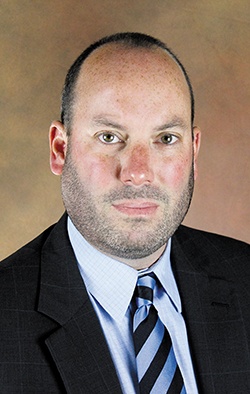WealthPath sees potential in collective investment funds
by October 10, 2016 12:00 am 388 views

This summer, WealthPath Investment Advisors in Rogers began offering collective investment funds, or CIFs, within its financial products, tapping into what some analysts say is a national trend.
CIFs (also called collective investment trusts) are investment vehicles that group assets from individuals and organizations to develop larger, more diversified portfolios, according to Investopedia. They are designed exclusively for retirement accounts.
Collective funds have been around since the 1920s. However, they have not been widely used within retirement plans — where mutual funds are the preferred vehicle — until the past few years, according to The Trust Advisor, a Santa Monica, California-based publication aimed at the wealth management community.
In February, The Trust Advisor reported data from Boston-based research firm Cerulli Associates, showing that collective trusts now account for $2.4 trillion, or 16 percent, of the $15 trillion in 401(k) and pension marketplace, up from $1.3 trillion in 2009.
A primary factor in the uptick has been an increase in transparency in the past few years, partly due to technology, where collective funds can be priced and traded on a daily basis.
“There is a very strong trend of increasing utilization for collective investment funds inside of plans and has been for a while,” said Clay Kendall, a partner at WealthPath. “Basically, it gives us the ability to manage money on any 401(k) plan in the country that wants to add us as an investment option.
“I think that it distinguishes us from most of our competitors at a local level,” he said.
Although collective investment funds are not regulated by the U.S. Securities and Exchange Commission, with a CIF the trust company is required to do an annual audit of the funds and hold the manager or managers accountable, Kendall said.
“This is a huge benefit to the employers in employer-sponsored plans, from a fiduciary perspective. They likely have no way to really judge if the manager is following their mandate or not with just a model portfolio as opposed to the collective investment funds,” he added.
Kendall said the upfront sunk cost to implement the new product was about $25,000. That included adding the firm’s five collective trusts to various platforms, linking to Morningstar to score them, and then marketing them.
That’s in addition to the “countless hours of time” spent developing the funds and meeting the screening standards of the trust companies, he said.
“It’s not cheap to do this, and we need to get significant assets in the funds soon to reach critical mass and then become profitable,” Kendall added.
Annually, the fees to manage the collective funds will be about $50,000 per year for WealthPath.
“Our goal is to get them on around 50 plans within 18 to 24 months and around $150 million in assets at that time and continue to grow from there. We currently have about 12 plans that have signed to add them, and the assets are starting to come in,” Kendall said.
“This will take time to develop, but we are very pleased and excited about where we are at this point and the potential,” he added.
To reach its goal, WealthPath will tap into a network it joined last year, when it became affiliated with the Pensionmark Financial Group.
The group has about 40 branches throughout the U.S., and WealthPath is its only affiliate in Arkansas.
“We have been working toward this and trying to figure out a way to market to other advisors on a larger scale for about a decade and finally found the right opportunity,” Kendall said. “This is a game-changer for our firm and really expands the lines of business where we can grow.”
In addition to adding collective investment funds, WealthPath has also started using an investment platform to manage assets for other firms whose clients want to hire the WealthPath team as a third-party portfolio manager.
WealthPath, founded in 2011, currently has $313 million in managed assets, according to 2016 SEC filings.
